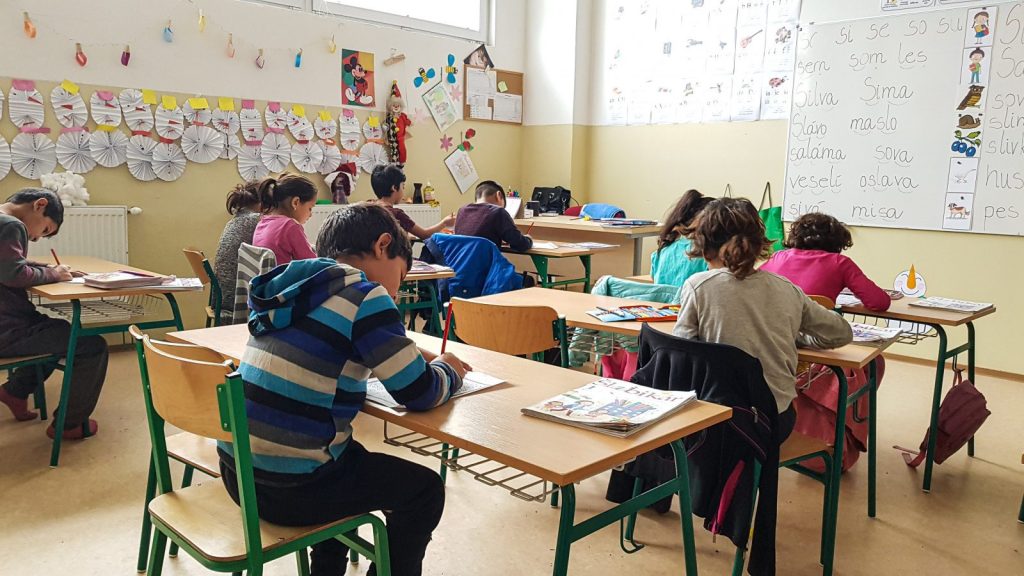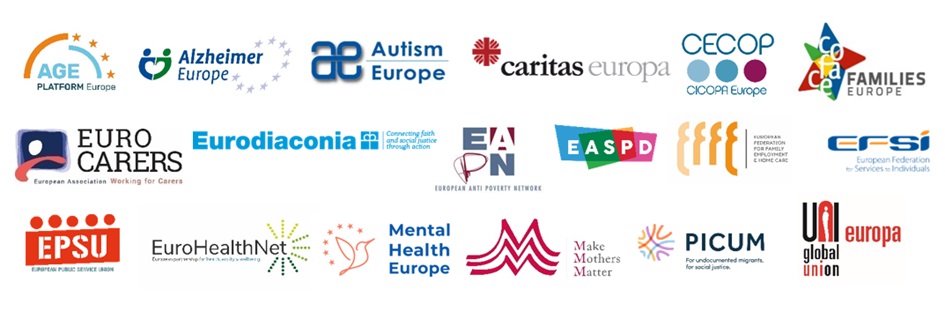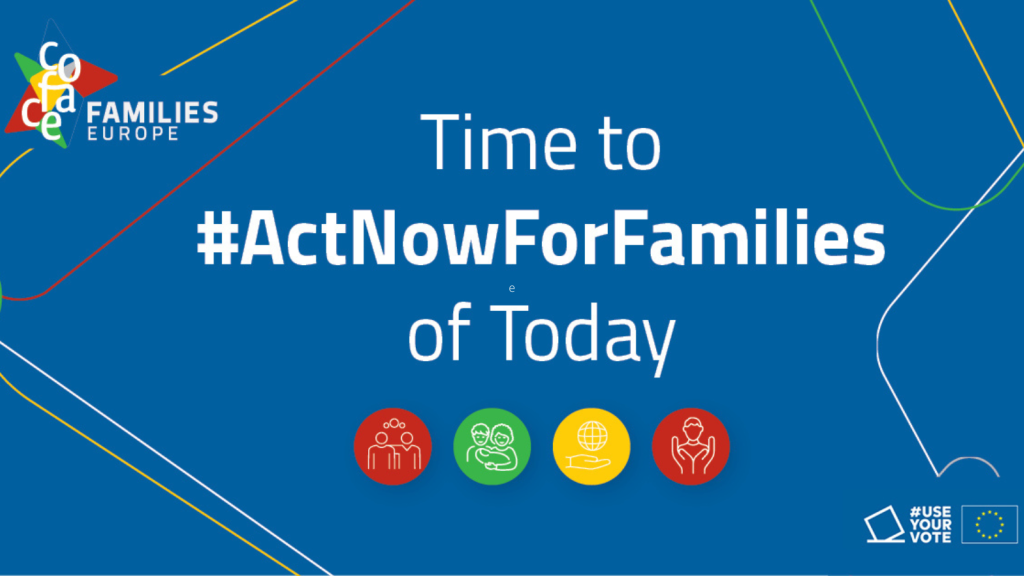The COVID-19 pandemic and the consequent lockdowns have had disastrous effects, and families across the world have been hard hit. We are all in the same storm but not in the same boat. The compulsory lockdowns, care services and school closures, and teleworking have pushed families into a new reality and magnified their vulnerabilities. Children and parents are all frazzled and unfulfilled. A general uncertainty about the future is causing immense stress.
However, the pandemic has also acted as a wake-up call and has put the focus on the essential role of families as main social safety nets in our society. In their day to day work families provide care, empathy, time, care and share knowledge. We are all part of this “core economy” but women spend far more time in it as men. COVID-19 brought to light many stories of resilience and mutual support and highlighted that women and carers are the essential workers keeping people and communities alive. This is too often invisible. We cannot let this new awareness fade away. We need to seize the opportunity and use this ‘discovery’ as a powerful drive to invest in high quality support for all families. We need to reduce their stress levels and decrease long lasting (physical and mental) health effects for both parents and children.
The international day of families (15th May) is an excellent moment for a vibrant conversation about this key role of families, to unlock new economic thinking on the interactions between the paid economy and unpaid economy, and the extent to which they depend on each other.
Families and family organisations across Europe have been working tirelessly, and they still do, to help families get through this pandemic crisis. They have used the full potential of technologies to ensure continued support in the community and to provide services to families via online services or in family centers. More than ever, those NGO-driven family support systems were crucial in reaching out to help families in need!
In the 2020 Annual Report of COFACE Families Europe that we launch today, you can see that our network worked hard to deliver quality and impactful actions for the diversity of European families and brought their needs to the European political fore, advocating for strong EU social policies and urgent support especially for family carers. In this difficult context for families and civil society organisations, COFACE also wants to drive innovation. Therefore, we launched our European Family lab with the ambition to build an innovation incubator as the place to be for NGO and family professionals to connect, support, inspire each other and share knowledge online.
It is clear that our present and our future are digital. During the pandemic, digital technologies kept families connected and societies functioning. Indeed, it would have been impossible to mitigate the social and economic impact of COVID-19 without technology. But the pandemic has also brought to the fore the gap in access to the digital world. Recent studies found that one in 20 children and families across Europe are digitally deprived (DigiGen 2021). In order to develop adequate policies tackling material deprivation among children (SDG1) we need to acknowledge the undeniable importance of access to a computer and the internet, especially with the ongoing pandemic forcing children to stay at home and engage in distance learning. Without a computer or Internet, there is a significant probability of children falling seriously behind in school and missing out on the opportunities the online world has to offer.
It is urgent to seize the opportunities on offer in our connected world and ensure all families and children are empowered and fully equipped to participate so that nobody is left behind.
But the COVID-19 crisis challenges us also to redefine our relationship with technology. At European level we are discussing about the right to disconnect. Should we not learn to live more slowly in our fast and digitalized world? Indeed there is a lot to be gained by slowing down at the right moment and unplug ourselves and switch off mobile phones to recharge our brains. I was inspired by Carl Honoré’s ‘Praise of Slow’. Would it not be beneficial for all of us to inject some “slow” into our family life and slow down at the right moment doing things at the right speed. If every family could introduce a family-metronome and find their own rhythm, that would help to feel better, be happier.
**DISCLAIMER: All opinions in this article reflect the views of the author, not of COFACE Families Europe**
About the author:
Annemie Drieskens holds a Masters degree in Law. She is for over 30 years actively involved in social policy and especially family policy as member of the board of the Gezinsbond, the largest family organisation in Belgium. Since 2012 she is the President of COFACE Families Europe.





